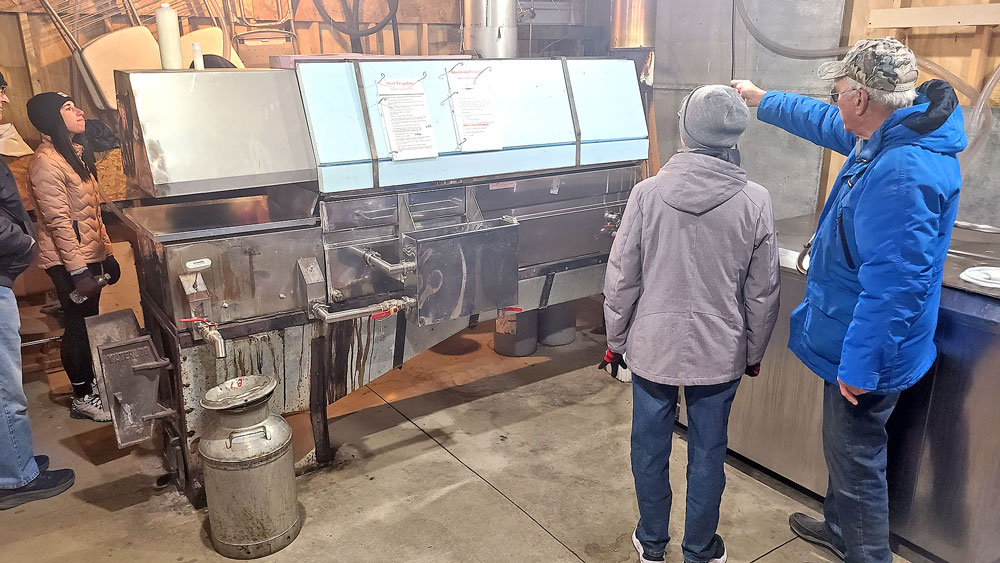Floyd County supervisors approve two CAFO recommendations

By Bob Steenson, bsteenson@charlescitypress.com
A small group of people voiced their opinions about two proposed new hog confinement operations in Floyd County at the Board of Supervisors meeting Tuesday morning.
The few people who spoke at the meeting, mostly potential neighbors of the facilities, asked the supervisors to turn down recommendations to the Iowa Department of Natural Resources on the two proposed sites.
The supervisors eventually approved both recommendations, although not without a dissenting vote on one of them.
The proposal is for two sites in Section 28 of Ulster Township, southeast of Rudd. Owner of the sites is Jason Demaray of New Hampton, doing business as Honeywood LLC and Spicewood LLC.
Each site would have two deep pit buildings holding 2,500 finishing hogs each, for a total of 5,000 hogs per site or 10,000 hogs in all.
During a public hearing on the construction permit applications, the supervisors read five letters in support of the projects and four against.
Supporters included the owner — Demaray — as well as the consultant he hired to put together the application, along with the two people who will manage each site and another, Jess Demaray, who has a business hauling and injecting manure.
Letters opposed to the projects were from two neighbors and from two young girls, one who is a neighbor and one the granddaughter of a neighbor.
Two people at the meeting spoke.
Jeff Schwartzkopf, who lives near the proposed site location, said his property value has already fallen 50 percent because of existing hog CAFOs (concentrated animal feeding operations) in his area.
“With a south wind during the summertime all the smell comes right to us,” he said. “So we can’t move. We can’t sell it.”
Sharon Koehler, who farms on property adjacent to the proposed site, said she and her husband raised cattle and hogs over the years.
“I’m used to manure smell. This is a different smell,” she said.
In her letter to the board, Roberta Russell, another neighbor to the proposed sites, talked about the state’s Master Matrix and what she called its inadequacies, the need for additional county road maintenance because of increased semi traffic for the CAFOs, the influence of outside corporations and factory farms, falling land values because of CAFOs and health impacts.
Everyone at the meeting agreed the state’s Master Matrix — a scoring system that determines whether a CAFO application meets state requirements — needs to be redone.
All three of the supervisors said the matrix doesn’t adequately meet the needs of local communities, and Becky Sexton, of Twin Lakes Environmental Services in Rockwell City, the project consultant, agreed changes need to be made.
One issue that came up at the hearing Monday caused Supervisor Roy Schwickerath to vote against one of the resolutions.
The application for the Spicewood CAFO was amended on Monday because at the site inspection with the Department of Natural Resources, it looked like the distance between buildings wasn’t enough to qualify for the points on that question of the matrix.
Sexton said the DNR asked them to use a different question, so they took out the points for that one and substituted another where they they qualified for points.
Supervisor Linda Tjaden said she was at the site inspection and the distance difference wasn’t much.
Jason Demaray, the owner, said the plans could have been changed to meet the separation distance requirements in that question and qualify for those points, but that would have placed one of the buildings closer to neighbors.
They decided to use another question to avoid that, he said.
Schwickerath said he agreed with the suggestion made by letter-writer Russell and by Mark Kuhn at the meeting that the public should be given an opportunity to review the amendments and comment before the board votes on that recommendation.
“I’m just questioning if the documents wouldn’t have been approved, wouldn’t have been correct the way they were originally filed,” he said.
After the public hearing closed, Schwickerath made a motion to recommend against approval of the application for the Spicewood CAFO because of the late revisions.
Referring to the Master Matrix, Schwickerath said, “If we don’t turn some down it will never change.”
That motion died for lack of a second.
Supervisor Doug Kamm then made a motion that the board approve the recommendation, but include a letter to the Iowa DNR that they were not comfortable with the way the application was amended just a day before the hearing.
That motion passed 2-1, with Schwickerath voting against.
The motion to approve the recommendation for the Honeywood site passed 3-0.
Sexton told the people at the hearing that if they ever have a problem with the CAFOs they should contact her.
“If you have issues I want you to call me, and then we’ll talk to Jason and see if there’s something we can do to help,” Sexton said. “We don’t want you to have issues at your home. We don’t want you to have problems.
“That’s my responsibility as his consultant,” she said. “Even if it’s 2 o’clock in the morning you’re still going to call me. I don’t have a problem with that. That’s my job.”
Kamm said, “My recommendation would be, just please be a good neighbor. When you look out there and decide there’s too many of them, build it someplace else. Scatter ’em out.”
Although the Board of Supervisors voted to recommend approval for both sites, in practice the recommendations have little impact.
A number of county boards around the state have voted to not recommend approval for projects in protest to the number or location of CAFOs in their areas, but as long as the project meets the Master Matrix and other state requirements, the DNR has said it must approve the applications.
Also at the meeting Monday, the board discussed the condition of county gravel roads with County Engineer Dusten Rolando.
Most county roads have problems, and some are nearly impassable because of ruts, soft spots and high ridges pushed up in the middle of the roads.
Rolando said the situation is slowly getting better, but the past winter was one of the worst in memory and it’s a matter of the ground water table getting back to normal so the roads can dry out and the county can grade them.
The county is applying spot gravel in some places in response to problems, but that doesn’t fix the situation entirely, he said.
“We need Mother Nature to heal it, to dry out,” Rolando said. “If it gets to 80 degrees it would be nice, a little but of wind. … We’re making progress. It’s just going to be a little bit yet.”









Social Share